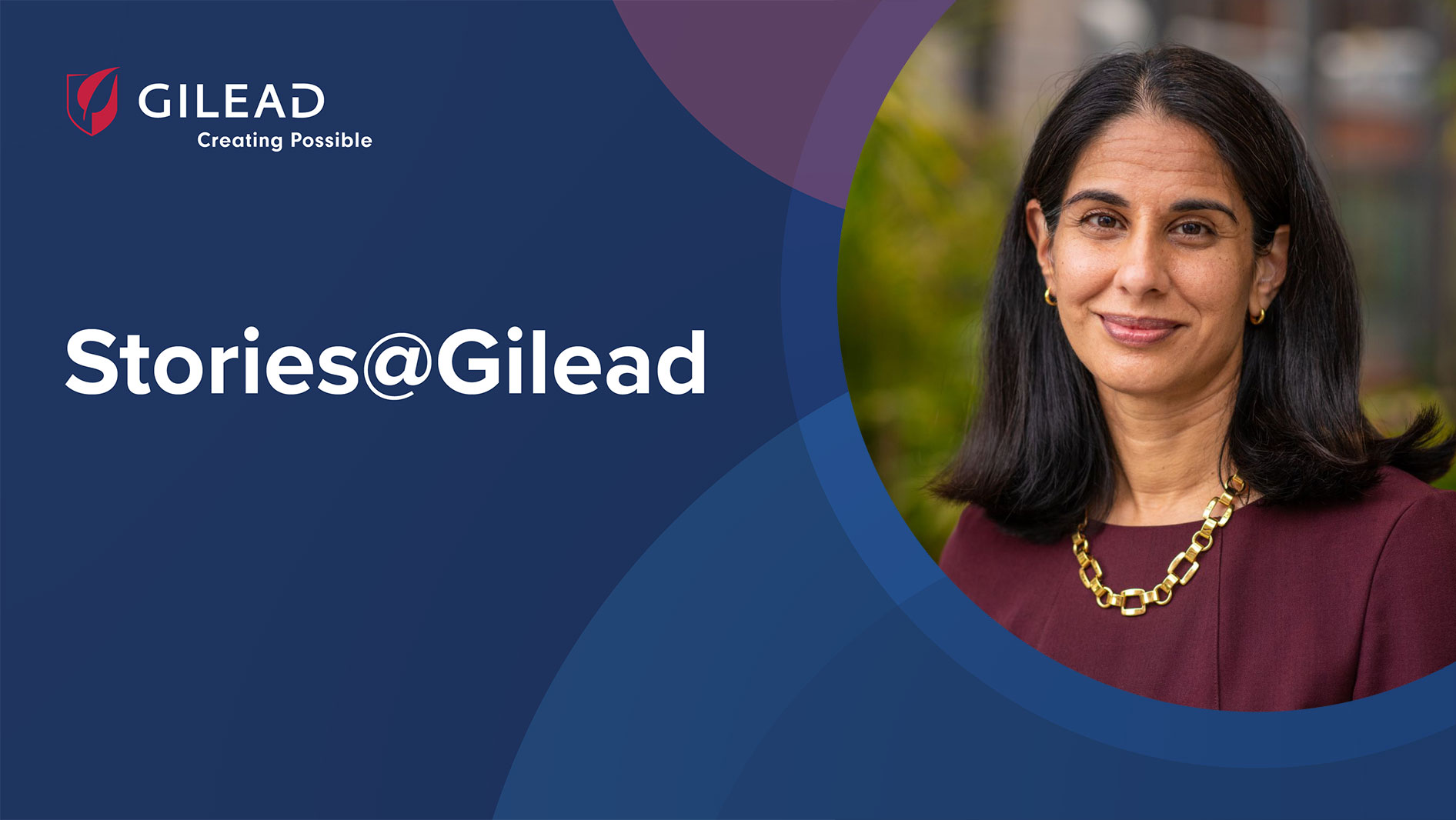Share Article
Finding solutions to complex areas of unmet medical need is fundamental to Dr. Sara Tolaney, Chief of the Division of Breast Oncology at Dana-Farber Cancer Institute and Program Chair for Gilead’s Research Scholars Program (RSP) in solid tumors.
The RSP provides support to early-career investigators doing highly innovative basic and clinical research, at a time when it can be challenging to obtain funding for their studies. As chair, Sara plays a key role in helping select who is eligible for funding.
Sara’s own career trajectory can be traced to Pasadena, California, where she grew up across the street from the California Institute of Technology and, she says, “Science was in the air.” Scientific research, including asking new questions and using experiments to get an answer was something she was interested in from a young age. “I loved the concreteness of it all.”
Sara was drawn to oncology as an undergraduate at Princeton University, volunteering in camps for children living with cancer and spending her summers studying pediatric oncology. She attended medical school at UC San Francisco and entered the field of adult oncology, where she felt inspired by the relationships she formed with patients. “I saw that you were able to have a very unique relationship with a patient at a particularly vulnerable time in their life,” she says.
These relationships inspired deeper questions and motivations for Sara, who specialized in breast cancer. “I thought a lot about how I could best help my patients, and this led to my impetus for drug development – which is what I now specialize in. I wanted to focus on finding new drugs that would help my patients.”
Sara’s expertise and continual pursuit of innovative scientific research led to her interest in working with the RSP, which has supported more than 240 scholars across numerous therapeutic areas since 2008. These junior researchers have helped enhance scientific understanding, address knowledge gaps and drive medical breakthroughs in areas of unmet medical need to help improve the lives of patients.
“This program is unique because it gives opportunities to junior researchers from all backgrounds,” Sara notes.
In her role as Chair of the Solid Tumors program in the U.S., Sara oversees an independent and diverse scientific review committee composed of experts in oncology who review all applications and select who will receive funding. Diversity is at the forefront of her mind, she says, and she is focused on reducing barriers to entry for underrepresented applicants and on helping to ensure that research proposals are representative of diverse voices.
Fostering Diversity in Medicine through Gilead's Research Scholars Program
“From a research perspective, it’s critical that we’re inclusive of all perspectives,” Sara explains. “We need to diversify people working in science and medicine because without that we’re not going to gain the trust of patients within diverse populations. They want to see someone that looks like them. They want someone who understands them, who gets their culture, who gets their language.”
This is particularly important, Sara says, for communities that are disproportionately affected by disease. She points to triple-negative breast cancer and the fact that Black women have a higher incidence of the disease, a greater risk of earlier onset or advanced cancer, and greater mortality rates. Having researchers that gain the patient population’s trust and that work to understand and address the driving forces behind disparities is critically important.
When reviewing applications, Sara and the committee carefully consider the background and vision of each individual’s work. “We’re trying to fund people whose goal is really to improve cancer care outcomes,” she says, reiterating that supporting women and individuals from groups underrepresented in medicine is also a priority.
Funding options can be limited for researchers, especially early career ones, which is why Sara believes that the RSP and programs like it are so critical. “It’s really nice to see industry out there helping to improve outcomes and to support junior investigators,” she says. “I want to applaud and congratulate Gilead for running a program like this.”
Interested in becoming a Research Scholar? Learn about the application process here.

